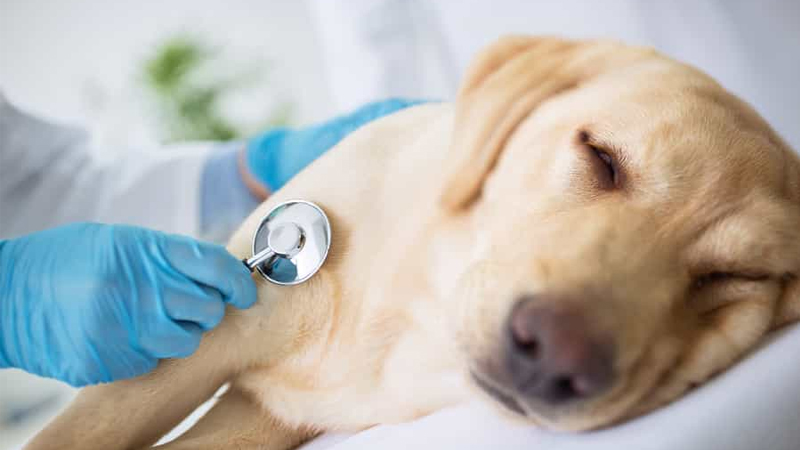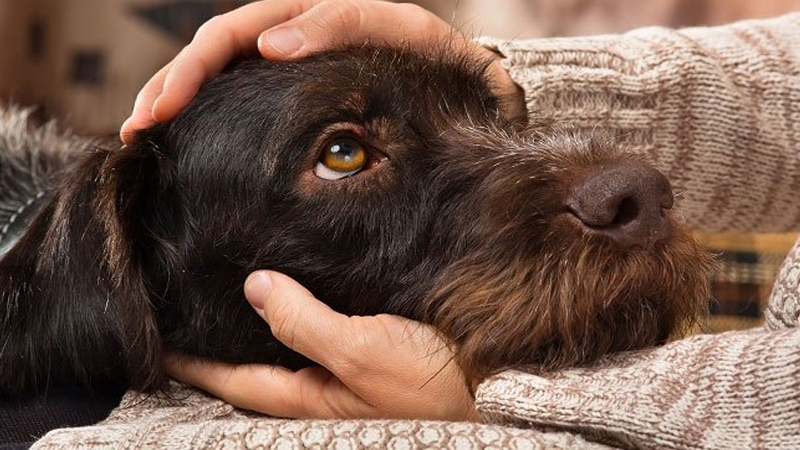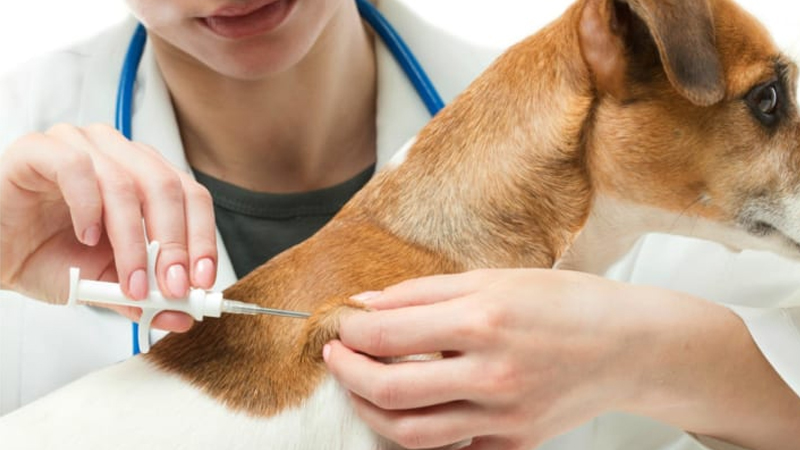Canine Care is a serious and potentially life-threatening disease caused by a virus for which there is currently no cure. It affects dogs of all breeds and ages, and the highly contagious nature of the disease means it can spread quickly through a population.
Canine distemper virus, belonging to the family Paramyxoviridae and the genus Morbillivirus, is the culprit behind this disease. It invades dogs’ respiratory and digestive systems, leaving them vulnerable to a host of complications and even death. Understandably, dog owners are concerned about the impact of this disease on their furry friends’ health and well-being.
1 Can Canine Care Be Transmitted to Humans?
It’s only natural to worry about the potential risks to your family when your dog falls ill. The good news is that canine care, as far as we know, does not pose a threat to humans. However, it is highly contagious among dogs and can be transmitted through respiratory droplets and fecal-oral routes.

To protect your furry friends, it’s crucial to keep them away from infected dogs. Even the healthiest dog with a robust immune system can fall victim to this disease if exposed.
2 Is There a Cure for Canine Care?
Unfortunately, there is currently no specific cure for this insidious disease. The virus spreads rapidly and causes immense suffering in affected dogs. However, with timely detection and proper care, it is possible to manage the disease.
If you notice any signs or symptoms, don’t delay—take your dog to a veterinary clinic immediately. Isolating the infected dog is essential to prevent the spread within the pack. Prevention is always better than cure, so ensure your dog is up to date with its vaccinations to protect against canine care and other dangerous diseases.

If, despite your best efforts, your dog passes away from this disease, there are a few things you should do to protect the rest of your pack: disinfect and thoroughly clean any areas the sick dog occupied, bury the dog at a safe depth to prevent bacterial growth and the spread of pathogens, and under no circumstances consume the meat of an infected dog.
Stay informed and follow veterinary advice to effectively prevent and treat this disease and keep your furry friends healthy and happy.
Learn more about canine distemper, a common and dangerous disease in dogs, to better protect your furry companions.
3 Initial Care for Dogs with Canine Care
During the initial stages of the disease, it is important to provide your dog with easily digestible, nutritious food. Prepare bland, soft, and mushy meals, such as porridge with ground lean meat, to ensure they get enough carbohydrates and nutrients. Add a pinch of salt to replenish electrolytes, but be careful not to overdo it. You may need to use a syringe to feed your dog if it refuses to eat. Avoid giving your dog any dairy products.

At this stage, your dog may be lethargic and spend most of its time lying down. Supplement its diet with sugar water to boost its energy levels. You can also bathe your dog with antibacterial soap on sunny days during the early stages of the disease to help control the spread of the virus.
4 Treating Canine Care
For the final stage of the disease, characterized by vomiting, excessive eye discharge, nasal mucus, and abdominal pimples, administer antibiotics three times a day. For the initial stage, twice-daily injections should suffice. Follow the veterinarian’s instructions for medication and supplement with vitamins to aid recovery.
You can also give your dog human ulcerative colitis medication, or try a natural remedy by mixing honey with turmeric powder and dissolving it in water before administering it to your dog. Ensure any pills are crushed and mixed with water before giving them to your dog.

Bathe your dog in warm water, and be sure to dry it thoroughly afterward to prevent catching a cold. Regularly clean and disinfect its living area, paying close attention to removing any saliva, feces, or mucus. If your dog is severely weakened and losing weight rapidly, consider taking it for intravenous electrolyte fluid therapy. Sunbathing can also help your dog relax and speed up its recovery.
With proper care and attention, your dog has a good chance of recovering from canine care within 2 to 4 weeks. Even after the disease subsides, continue to follow your veterinarian’s instructions regarding diet, rest, and medication to prevent a relapse.
5 Preventing Canine Care
The best way to protect your dog from canine care is to ensure it is up to date with its vaccinations. The DHPPL vaccine protects against five common canine diseases: distemper, infectious canine hepatitis, parvovirus, parainfluenza, and leptospirosis. Visit your veterinarian regularly to ensure your dog receives all the necessary vaccinations.

Maintain high standards of veterinary hygiene by regularly cleaning and disinfecting your dog’s living area to minimize the risk of disease transmission. Provide your dog with a nutritious and balanced diet, and always prioritize its health and safety.
By taking these preventive measures, you can significantly reduce the risk of your dog contracting not just canine care but also other infectious diseases. Remember, your dog’s health is in your hands, and with proper care and attention, you can help extend its lifespan and ensure a happy and healthy life.






























